Syria war: Israel 'strikes Damascus military complex'
- Published
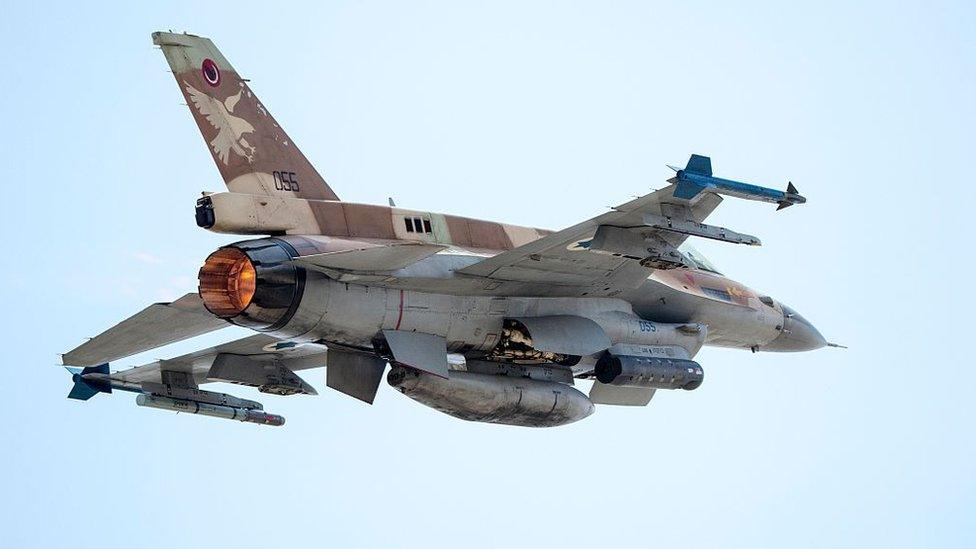
Israel has acknowledged carrying out dozens of strikes inside Syria in recent years
Israeli warplanes have fired missiles at a Syrian military position near the capital, Damascus, Syrian media report.
A Syrian military statement said its air defence systems blocked most of the missiles, but gave no further details.
A monitor said ammunition depots in Jamraya were hit. It is the location of a scientific facility where the West suspects chemical weapons are produced.
Israel, which has acknowledged carrying out at least 100 clandestine strikes in Syria since 2011, declined to comment.
Many of the Israeli strikes are believed to been aimed at preventing transfers of advanced weapons to the Lebanese Hezbollah movement.
The Iran-backed group fought a war with Israel in 2006 and has sent thousands of fighters to Syria to support President Bashar al-Assad's forces.
The Syrian military statement said Israeli warplanes had fired several missiles from inside Lebanese airspace at a military position in the Damascus countryside at 03:42 (01:42 GMT) on Wednesday.
"The general command of the armed forces holds Israel fully responsible for the dangerous consequences of its repeated, aggressive and uncalculated adventures," it added.
The Syrian Observatory for Human Rights, a UK-based monitoring group, said some of the missiles struck ammunition depots in Jamraya.

The area - also known as Dummar - is home to several military facilities but also a branch of the Scientific Studies and Research Centre (SSRC).
A Western intelligence agency told the BBC last year that three branches of the SSRC, including the one at Jamraya, were being used to produce chemical munitions in violation of a deal that saw Mr Assad agree to destroy his chemical arsenal after a deadly Sarin attack in Damascus in 2013.
The SSRC is promoted by the Syrian government as a civilian research institute but the US accuses the agency of focusing on the development of non-conventional weapons and the means to deliver them.
Wednesday's missile strike came after medics and Western powers accused Syrian government forces of dropping bombs filled with chlorine on rebel-held areas six times over the past month.
"When I was hit by the gas I couldn't breathe or talk"
The government has dismissed the reports as "lies", but UN war crimes experts have called them "alarming" and said they are investigating.
In an interview with BFM television on Wednesday, French Foreign Minister Jean-Yves Le Drian said "all the indications that we have show that at the moment chlorine is being used by the Syrian regime".
Asked how France would respond if the use was confirmed by experts, Mr Le Drian noted that last month 25 countries had formed a "partnership against impunity" to hold to account those responsible for chemical attacks.
- Published6 February 2018
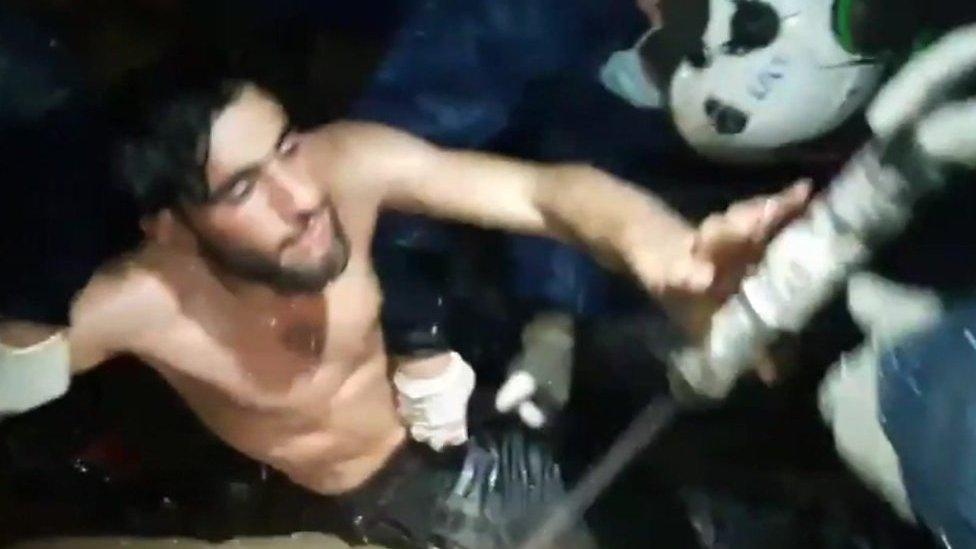
- Published7 September 2017
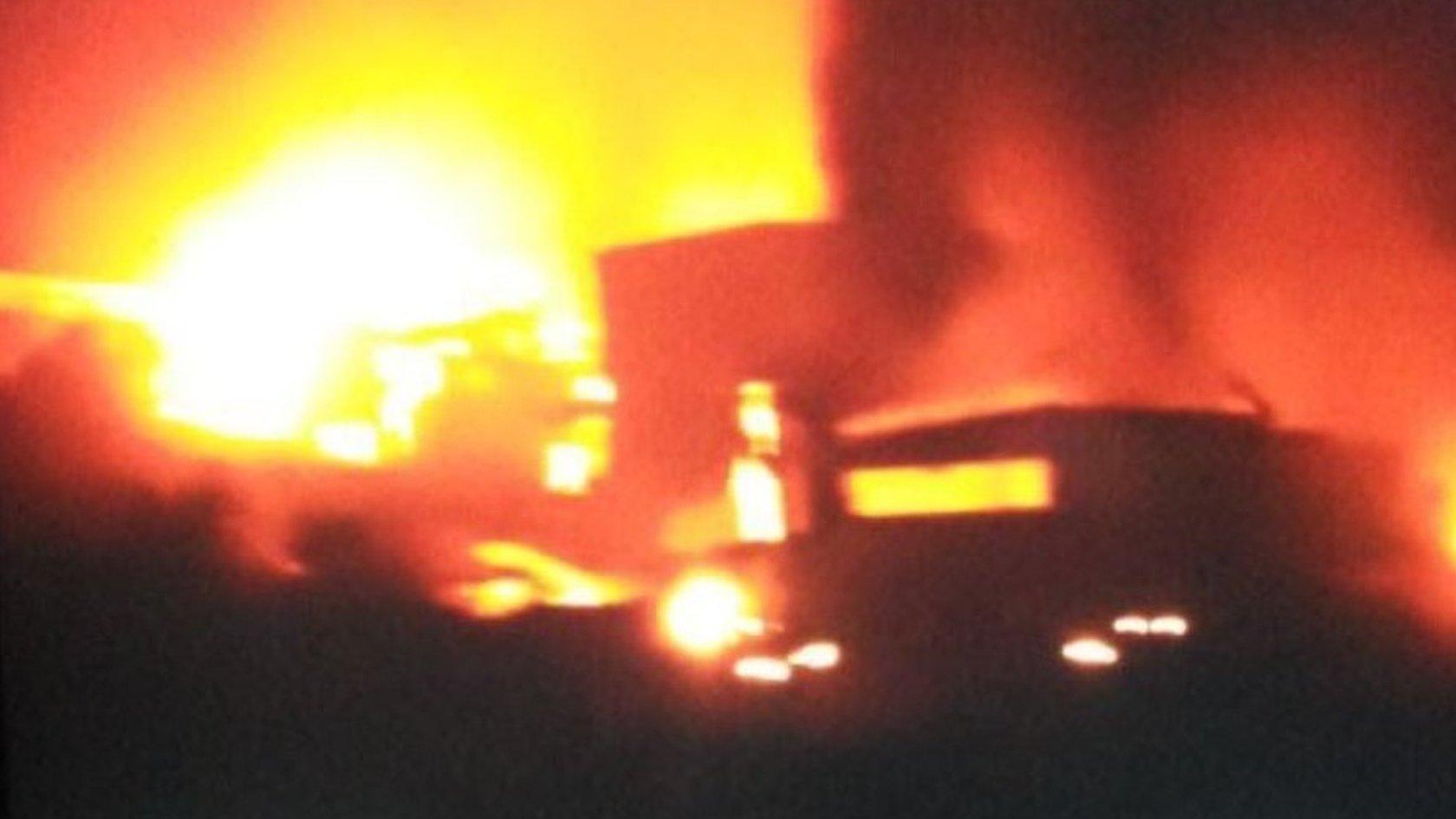
- Published4 May 2017
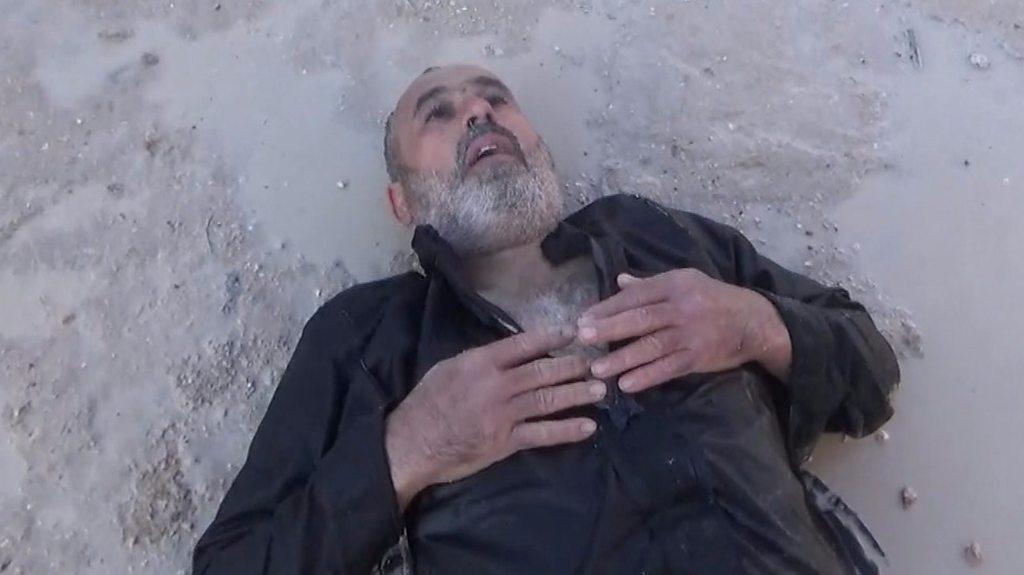
- Published13 April 2017
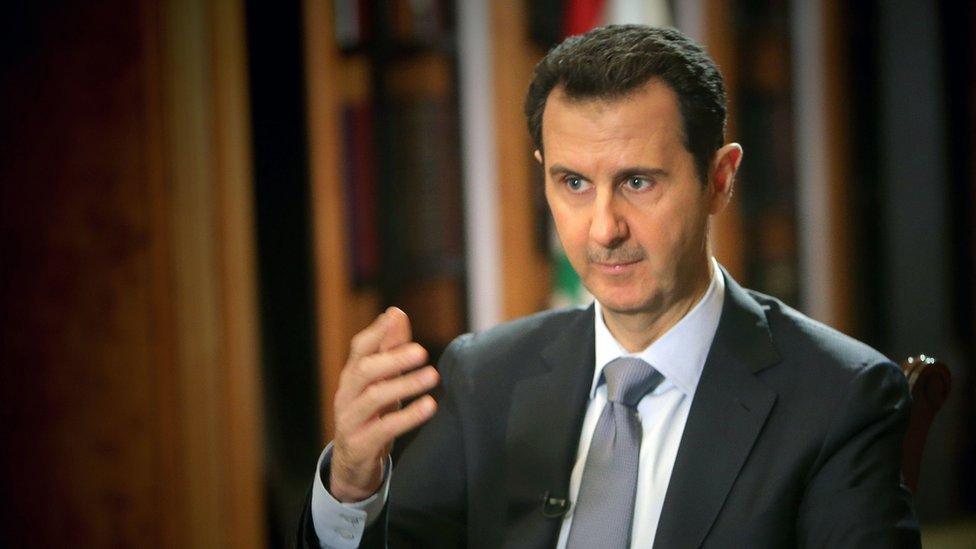
- Published4 May 2017
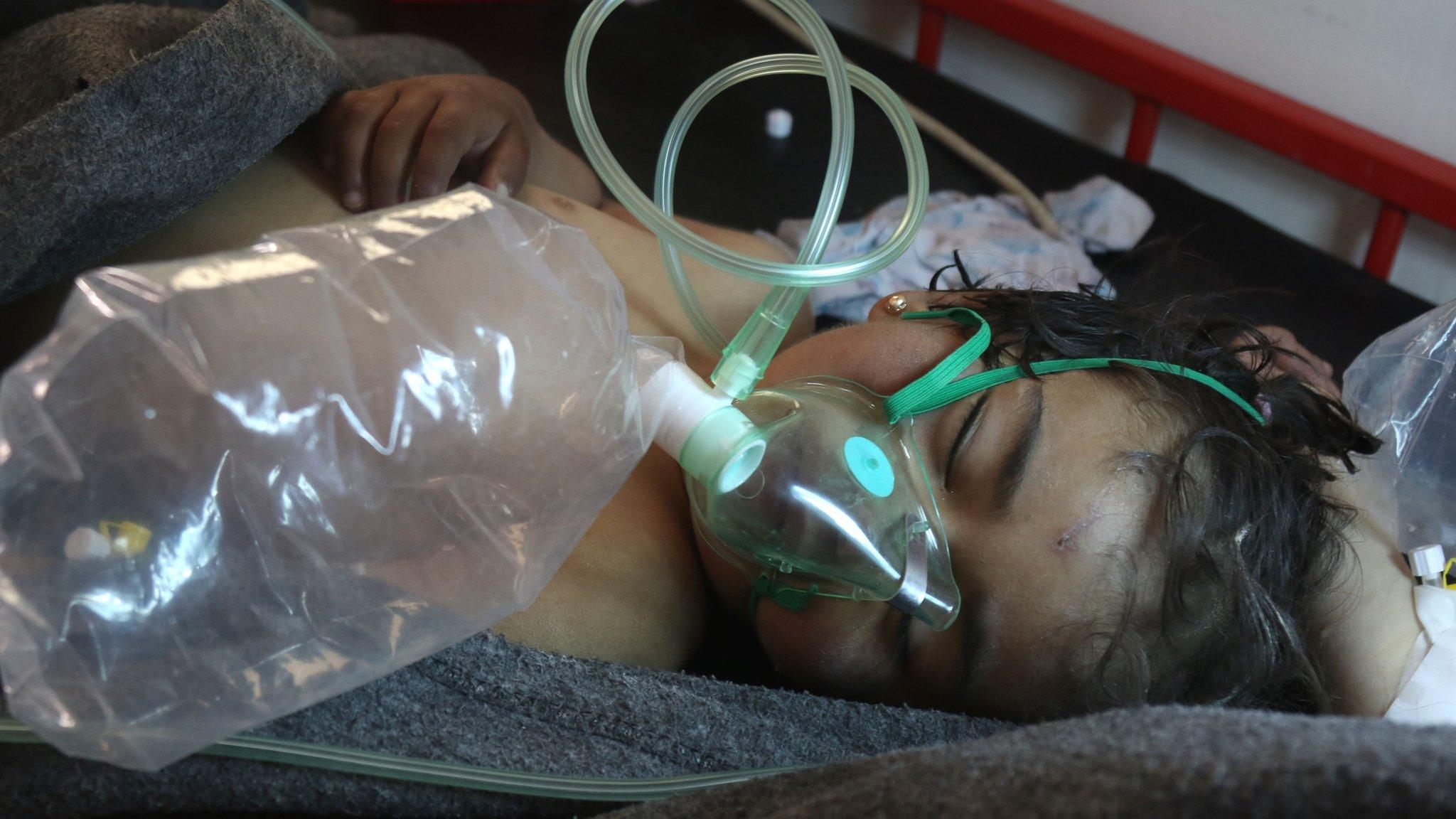
- Published2 May 2023
